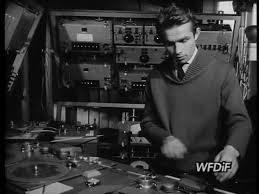Who counts as a Polish composer?
mainAn article which appears to appeal to a narrow nationalism turns out to be a rather glorious exploration of Polish iconoclasm and eccentricities.
Where else would a graduate of the Military University of Technology become a pioneering ally of avant-garde composers?
Read here.






I once heard opera ‘Madam Curie’ by Elżbieta Sikora, who is mentioned in this article. It’s shameful that this composer is not better known.
Interesting article. It has been very difficult to forge a Polish cultural identity because of the country having been occupied almost constantly by neighbouring nations. So, there were only two options: the state, either imaginary or real, or a European identity.
The mentioned composers in the article fall in the category of European identity – they have nothing specifically ‘Polish’ in their work. Their internationalism was probably inspired by the example of Szymanowski, who is not mentioned but rises far above the level of the modernos.
They are a curious bunch – some are real composers (Weinberg, Palester, and Koffler), the rest merely reflects the international attempts to create a sonic territory separate from music, which becomes clear by listening to the offered videos: the creepy soundscape of Ms Buczek (who wisely gave-up her attempts), the materialist emptiness of Krauze inspired by the silly paintings of Strzeminski (who would be interested in such childish nihilism?), the #metoo – harrassment of the double bass by Stanzyk, the silly amateurism of Rudnik (which shows that no musical expertise is necessary for the electronic genre – the introducing lady typically revealing her ignorance of what musical performance is), Blecharz’ pretentious ‘opera’ nonsense (meanwhile very old nitwit hat and open to easy imitation by other nitwits). Against all of this, the Bergian chromatic suffering of Koffler stands out as music of sophistication, using tonal and classical elements within a dodecaphonic aesthetic, reflecting the inner confusion and spiritual alienation of the last century, in search of the lost paradise.
Very interesting article! And the way Mr. Lech dismisses Arnold Schönberg as “a Viennese Modernist painter and composer” is a thing to behold. How are the mighty fallen!
I think it’s wrong to say Chopin was not a Polish composer, as he self-identified as proudly Polish even as he lived abroad. He composed mazurkas and polonaises his entire life. If he felt a strong sense of Polish identity then he’s Polish.
Very true. One could say: a Polish / French / European cultural identity. Chopin’s smooth and eloquent elegance quickly opened the doors of Parisian high society salons where he quickly made friends. That his father was French by birth, must have been a great help.